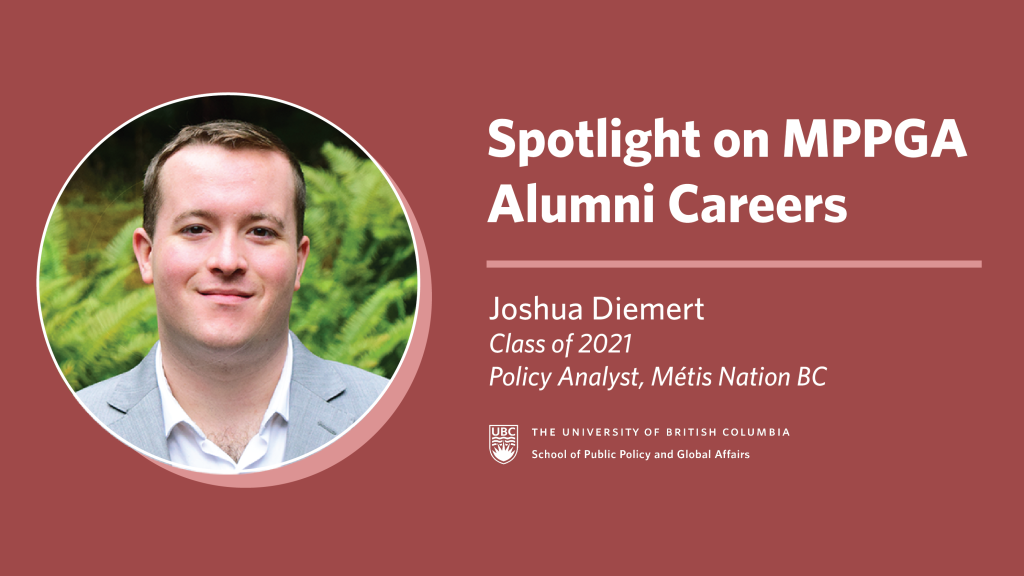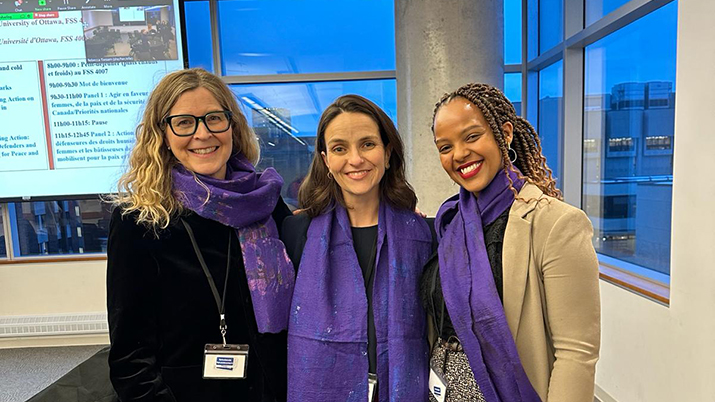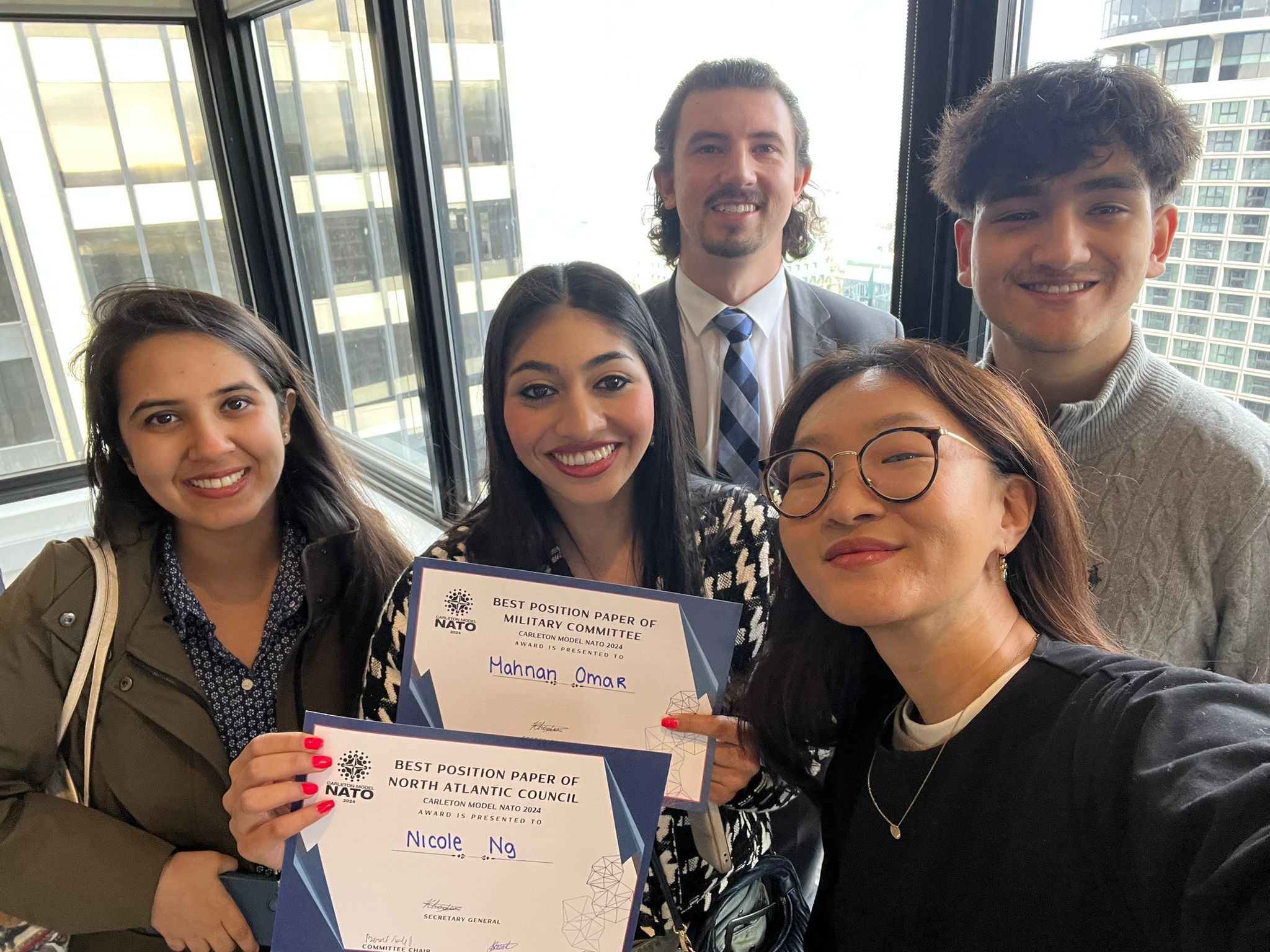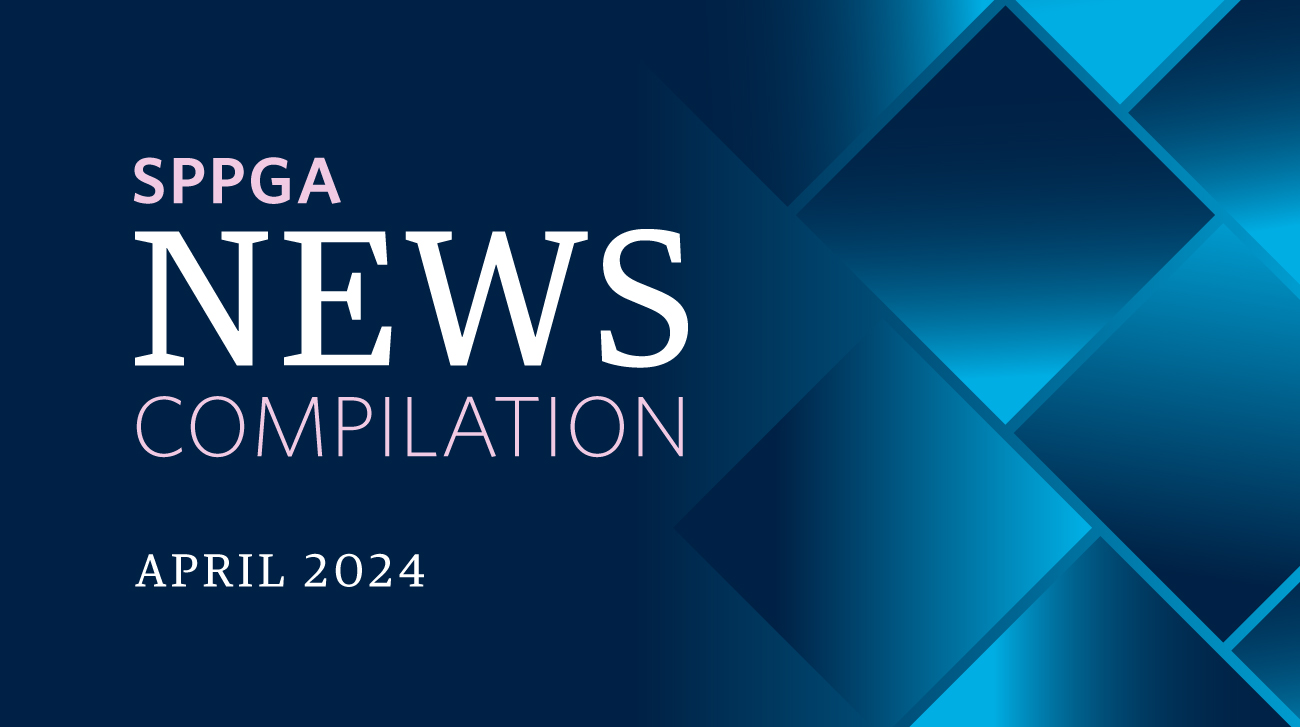

During our Spotlight on MPPGA Alumni Careers series, meet the UBC Master of Public Policy and Global Affairs (MPPGA) alumni who are committed to addressing pressing and complex public policy and global affairs challenges facing communities around the world.
Today, we are featuring Joshua Diemert (‘21), who works as a Policy Analyst for Métis Nation of BC’s Ministry of Postsecondary Education.
SPPGA: Could you please tell us a little about yourself, your background, and how you became interested in public policy and global affairs?
I graduated with a business degree in 2017, and spent time working in corporate banking. I liked the challenge of the work a lot, but felt unfulfilled that my work didn’t seem to be having the impact that it could – public policy, by nature, allows you to have more real positive effect on the lives of people, especially marginalized or vulnerable communities.
SPPGA: Were there experiences you had during the MPPGA program that directly or indirectly contributed to your career journey?
The Global Policy Project is the most innovative, challenging, energizing work I’ve ever done at a university. Nothing taught me more about how to engage with vulnerable communities safely and with dignity, how to balance the needs of multiple stakeholders, and quite frankly, how to work effectively in my apartment.
SPPGA: Please describe your current role. What makes you proud about this work?
I am a policy analyst for Métis Nation of BC’s Ministry of Postsecondary Education. A good chunk of my role involves consulting with colonial governments in BC and at the federal level, representing the needs and interests of Métis students. We deal with challenges around technology access, relocation, cultural safety on campus, and so on.
The most rewarding part of the job is the tangible impact on reconciliation. Reconciliation and climate change are the two biggest challenges facing Canadian policymakers in the future and being able to advocate for and represent the interests of Indigenous people in immediate ways – how do students pay for their education, how do we decolonize and Indigenize campuses – is a central part of that work.
SPPGA: Could you describe the policy influence or impact you are having in this current role?
The biggest thing we’ve tried to do as an office is reframe the conversations around data-informed policy. There are so many different forms of knowledge and learning – yes, survey results and Stata charts can present one form of data, but Indigenous learning, storytelling and witnessing are equally impactful and valid. Finding the balance between those different forms of knowledge is key to building stronger relationships with colonial government and decolonizing Crown-Indigenous relationships overall.
SPPGA: What specific knowledge, skills, and/or networks did you gain in the MPPGA program that help you succeed in this role?
It sounds silly but being able to write concisely with well-researched arguments is by far the biggest impact MPPGA has on my job. The focus on practicality, the impact of instructors with real-world policy experience, bear out a lot. University students are often trained to be verbose and put together 5,000 word papers…in the real world, nobody reads past the first page, and MPPGA did a really good job training us to put together the best possible first page.
SPPGA: What is your career advice for current MPPGA students and new graduates?
By the time you graduate, you’ll have completed a Master’s degree from one of the best schools in the world and finished a very rigorous capstone research project. You have real skills and you’re an in-demand employee, don’t be afraid to sell yourself as such.
Thank you for your time and insights!


